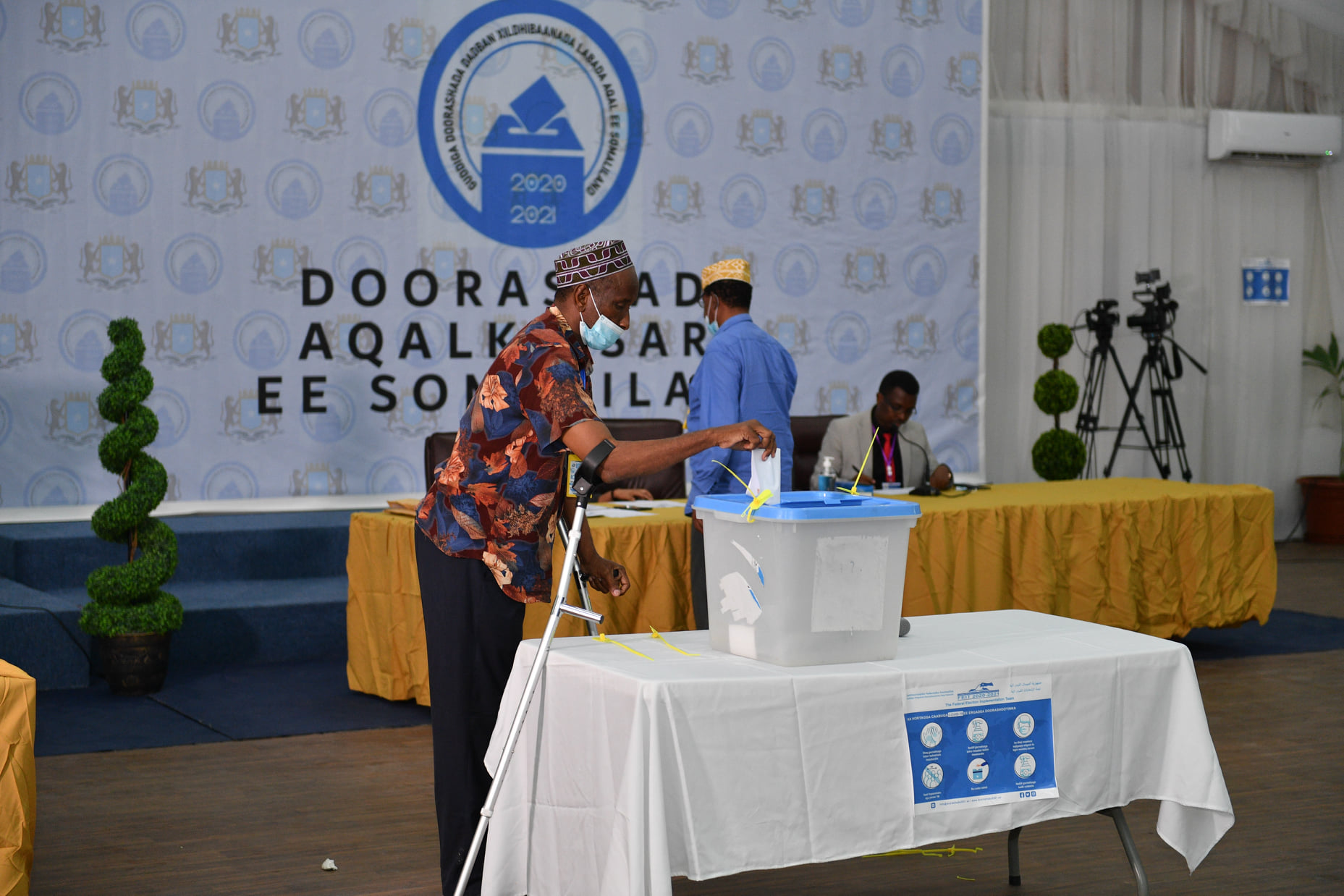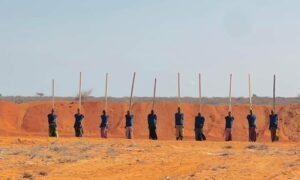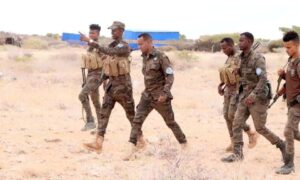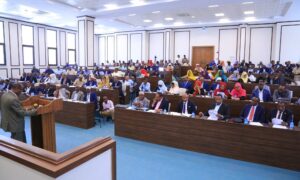25.01.2022 Mogadishu, Somalia
The Somali election has been sluggish for nearly a year now. It felt like just yesterday when the President of Somalia and regional leaders sat down to sign the 17th Sept Agreement which in theory should have finalised the election for completion by February 2021.
Instead, we have seen a rollercoaster of a journey as Somalis across the globe eagerly wait for this crucial yet ever-delaying election to take place.
It was May 1st when, following a series of skirmish between small group of rebels and the government forces in the capital that a new political paradigm was created. Rather than the President participating in the election implementation process as a head of state, he would delegate the entirety of his role to his Prime Minister, Mohamed Hussein Roble.
Somali eyes were glued to the TV as the future of the country was hung on the balance. For many, it was a reminder of the wars that ravaged the capital that was now seemingly in recovery.
The delegation of power saw the creation of the National Consultative Council comprising of regional leaders and the Prime Minister.
The NCS has met numerous times and setup a framework for the election. In May, in an event attended by all political actors in Somalia from President Farmaajo to opposition figures like former President’s Hassan Sheikh & Sharif Sheikh, forgiveness was asked with many believing with this new framework embraced by all would put to bed the hatred amongst political figures. However, this was far from the truth.
By August 2021, the likelihood of the May framework being completed by October 8th was looking increasingly impossible. Critics of the Prime Minister and the NCS agreement pointed out the amount of power yielded by regional leaders over the election implementation.
Regional leaders were able to influence varying institutional layers ranging from the SEIT committee members to tribal elders electing MPs and Senators.
The failure to complete the election was therefore pinned on regional governments. For instance, despite the fact that regional leaders agreed to an election framework by end of May, regional states only started towards the end of the summer 2021. Jubaland was the first regional state to hold Upper House election with Senators being elected on July 29th. That it is 2 months after the agreement was set.
Additionally, many critics have highlighted the customs of Somali regional states to hold elections in very small stages. Rather than holding elections in whole, they would simply do it in small numbers to either buy time or yield more influence on the outcome of the results.
Similarly, we have seen the August and October 2021 framework for both Houses of Parliament to be completed by December 31st 2021 being completely missed with similar problems aforementioned at play.
So the major question for many Somalis becomes, will this new agreement be any different?
There is a push for more transparency:
– Article 1 stipulates that a list of all members of the local Committees that elect Elders to represent prior to the election
– Article 2 dictates clearly communication btw SEIT & Federal EIT & Dispute Team regarding lists of Elders.
– Article 3 emphasises the independence of the election implementation teams
– Article 5 for example demands officials to ensure that all elders and candidates have successfully fulfilled the basic requirements needed.
– Article 8 states that there cannot be an obstruction of candidates to meet elders committees for Parliamentary seats.
The agreement also has expressed concern about the continued infighting within the election committees, particular on a Federal level with Article 11 addressing professionalism.
Many have criticised the Prime Minister for his dismissal of 7 members of the Disputes Committee as well as the sacking of the FEIT which resulted in a civil war between members of the committees that supported the PM decision and those that rejected it.
The agreement also addressed the importance of impartiality from the armed forces with Article 16 demanding all personnel to remain political neutral as the election kicks off.
However, the most controversial part of this agreement was Article 17 which requested for AMISOM units to patrol the Presidential Palace. While AMISOM forces have done so in the past, the Somali National Army Presidential Guard units have been guarding the palace for years now.
Additionally, many have questions whether the NCS has the legal power to do so. The Commander in Chief of the SNA is the President, followed by the Chief of the Somali Armed Forces. Therefore, such a decision to move SNA forces and bring AMISOM would require direct consent from both senior officials.
However, it cannot be ruled out from happening as the President & PM are currently interested in defusing the situation rather than escalating. Compromise is a common theme.
Finally, the election was agreed to be completed by Feb 25th.
This agreement is a step in the right direction. It was inclusive and involved all political actors from opposition figures to civil society, therefore incorporating all varying views. Some however have criticised the presence of the foreign ambassadors to discuss Somali internal affairs.
The agreement attempts to rectify many issues regarding transparency & fair elections. It has essentially shifted the power slightly away from regional leaders which has probably put a smile on the face of many Somalis including the opposition.
President Farmaajo in a speech wholeheartedly throw full support behind this new agreement. Similarly, international partners have expressed support for this agreement.
All eyes are now on the regional leaders & PM to fulfil the promises they have made. Somalis watch with a cautious eye as a lot of empty promises were made throughout 2021 with the US going so far as to threaten sanctions against political players it considers “spoilers”.
Is 2022 the year we see a new President?
For regular updates on Somalia follow Suldan Mohamed and Horufadhi Media on Social Media.







